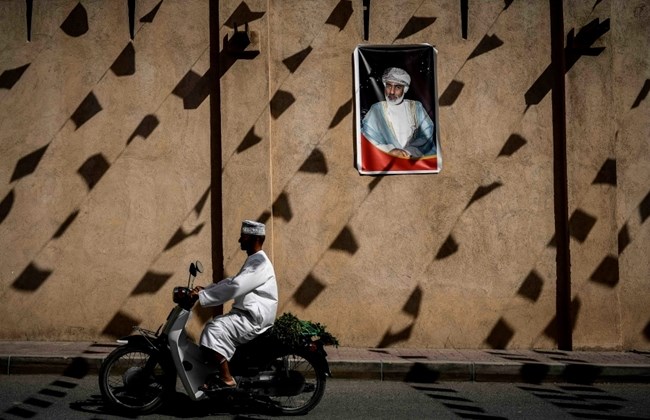Bond investors rattled by Bahrain’s fiscal woes last year are bracing for the next potential crisis in the Gulf region: Oman. The cash-strapped sultanate has been slow to implement reforms following the crash in oil prices in 2014 and is seeking to tap the debt market for a fourth year.
Its budget deficit is among the largest of all the sovereigns tracked by Fitch Ratings, which downgraded its debt to junk in December.
Concerns over Oman’s dwindling buffers have also sparked a debate on whether it’ll need a bailout similar to the one that Bahrain got last year.
“Oman has the most concerning credit trends in the region,” said Abdul Kadir Hussain, the head of fixed income at Arqaam Capital, a Dubai-based investment bank.
“Issuance needs are high.”
Oman’s bonds are cheap relative Gulf Cooperation Council peers.
At around 7 percent, the sultanate’s 2028 bond yields about 40 basis points more than Bahrain’s debt of similar maturity – even though Oman is rated two levels higher at BB+ by Fitch.
Still, Emirates NBD Asset Management isn’t rushing to buy.
When Bahrain’s bonds slumped following a ratings cut by Fitch in March, the Dubai-based money manager picked them up at a bargain. But the money manager stayed away when Fitch downgraded Oman in December. Without reforms, buying the debt would require a “leap of faith,” said Salman Bajwa, who heads the firm.
Fiscal GapThe government plans to raise $6.2 billion offshore and at home, but will need to borrow more should oil prices decline, Arqaam Capital’s Hussain said.
It may have to pay a premium of at least 45 basis points to its existing debt, with the December sell-off sparked by Fitch’s downgrade still fresh in investors’ minds, said Sergey Dergachev, senior portfolio manager at Union Investment Privatfonds GmbH in Frankfurt.
While Bahrain has benefited financially from its close relationship with Saudi Arabia, Oman has resisted pressure to take sides in regional spats. The sultanate has pursued independent polices that sometimes put it at odds with its neighbors, including Iran and Qatar.
“In order to secure a GCC support package similar to that given to Bahrain, Oman would have to undertake serious budgetary reforms, and would also have to see a change in its more neutral political orientation to a more pro-Saudi position,” said Mohammed Elmi, an emerging-market portfolio manager at Federated Investors U.K.
Brent crude prices at around $60 per barrel are below what Oman needs to balance its budget, he said.
Trading OpportunityPhilipp Good, Zurich-based CEO of Fisch Asset Management AG, said he wasn’t worried about the nation’s credit profile, for now. The sultanate was starting to diversify away from oil, investing in infrastructure and focusing on tourism, he said. It plans to introduce VAT this year.
“I see it as a double-B credit; it is priced as a single-B credit,” Good said. “As long as we have this discrepancy, you can imagine we’d remain overweight.”
Government debt will probably climb to 58 percent of gross domestic product by 2020, from 48 percent last year, according to Fitch.
Oman’s net foreign assets will shrink to a negative 8 percent of GDP in 2020, from an asset position of 7 percent in 2018.
This reflects the government’s external borrowing, the drawdown of reserves and use of the sovereign wealth fund for financing.
“For now, assets and liquidity in the sovereign wealth fund provide comfort and cushion,” Hussain said.


